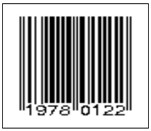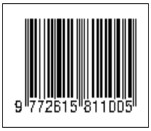MEMBANGUN SINERGI ANTARA KESEJAHTERAAN FORMAL DAN INFORMAL (SUATU KAJIAN ATAS TANTANGAN DAN KELEBIHAN)
Abstract
Keywords
Full Text:
PDFReferences
Adminuniv. (2021). Teori Kesejahteraan Sosial. Fisip Umsu.
Badan Koordinasi Penanaman Modal. (2021). Upaya Pemerintah untuk Memajukan UMKM Indonesia. BPKM/Investasi.
Collington, R. (2022). Disrupting the Welfare State? Digitalisation and the Retrenchment of Public Sector Capacity. New Political Economy, 27(2). https://doi.org/10.1080/13563467.2021.1952559
Hadiyono, V. (2020). Indonesia Dalam Menjawab Konsep Negara Welfare State dan Tatangannya. JURNAL HUKUM, POLITIK DAN KEKUASAAN, 1(1). https://doi.org/10.24167/jhpk.v1i1.2672
Husna, N. (2014). Ilmu kesejahteraan sosial dan pekerjaan sosial. Jurnal Al-Bayan: Media Kajian Dan Pengembangan Ilmu Dakwah, 6(23).
Kik, F. E. A., & Imang, U. (2019). Kesejahteraan sosial masyarakat bandar di kawasan perumahan. Malaysian Journal of Social Sciences and HUmanities, 4(6).
Lindell, J., Jakobsson, P., & Stiernstedt, F. (2022). The media welfare state: A citizen perspective. European Journal of Communication, 37(3). https://doi.org/10.1177/02673231211046792
Lukiyanto, K., & Wijayaningtyas, M. (2020). Gotong Royong as social capital to overcome micro and small enterprises’ capital difficulties. Heliyon, 6(9). https://doi.org/10.1016/j.heliyon.2020.e04879
Nasution, B. J. (2016). Metode Penelitian Ilmu Hukum. In 2.
Ruaida, D., Ridwan, M., & Ningsih, V. R. (2022). Program pemberdayaan dalam meningkatkan kesejahteraan Suku Anak Dalam di Kabupaten Sarolangun. Health Promotion and Community Engagement Journal, 1(1).
Suradi. (2007). Pembangunan manusia, kemiskinan dan kesejahteraan sosial. Jurnal Penelitian Dan Pengembangan Kesjahteraan Sosial, 12(3).
Taqiuddin, H. U. (2021). Gagasan UUD 1945 Sebagai Konstitusi Politik, Konstitusi Ekonomi, dan Konstitusi Sosial. Econetica, Vol. 3 No.(November).
DOI: https://doi.org/10.35327/gara.v17i4.611
Refbacks
- There are currently no refbacks.
Copyright (c) 2023 GANEC SWARA

This work is licensed under a Creative Commons Attribution-ShareAlike 4.0 International License.










